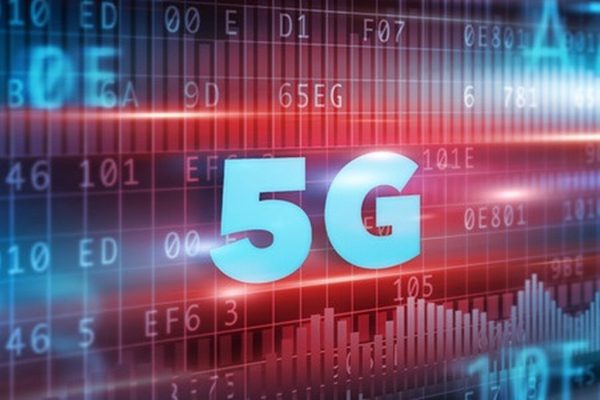Mobile Operators Reject Call to Stop 5G Rollout Over Health Fears UPDATE

The trade association for UK mobile operators, Mobile UK, has warned that calls for the 5G rollout to be delayed on health grounds are “without merit“. The commentary comes after Professor John William Frank (University of Edinburgh) alleged that the transmitter density required for 5G may be “potentially harmful to health.”
At present the only known health impact from radio signals in a low power mobile network environment is a minuscule amount of heating, although your body experiences massively more heating from the natural electromagnetic environment, such as via the Sun.
We have previously run a number of articles to help fact check some of the 5G health claims (5G health claims fact check) and strongly recommend those with a concern take the time to both read and understand those. Equally the UK Government, Public Health England, the World Health Organisation (WHO) and many others have said there is no proven risk of cancer or other serious health impacts from mobile phone use.
Advertisement
Last year the International Commission on Non‐Ionizing Radiation Protection (ICNIRP) completed a major review, which examined thousands of more recent scientific studies on the subject, and updated its guidelines to support 5G accordingly (here). The ICNIRP reiterated that they couldn’t find enough solid and reliable scientific evidence for them to conclude that radio waves (i.e. those operating within the guidelines) could result in any truly negative health effects.
Despite all this, Professor John William Frank (Usher Institute, University of Edinburgh) has called for countries to err on the side of caution and stop the global rollout of 5G “pending clearer evidence of safety.” The opinion piece is widely said (example) to have been published online in the Journal of Epidemiology & Community Health, although we struggled to find it ourselves when searching.
The Professor’s key concern appears to be that the transmitter density required for 5G, which he notes uses much higher frequency (3 to 300GHz) radio waves than in the past, may mean that more people will be exposed to radio frequency electromagnetic fields (RF-EMFs), which he fears could cause harm.
Professor John Frank said:
“A growing number of engineers, scientists, and doctors internationally … [are] calling on governments to raise their safety standards for RF-EMFs, commission more and better research, and hold off on further increases in public exposure, pending clearer evidence of safety.
It is highly likely that each of these many forms of transmission causes somewhat different biological effects–making sound, comprehensive and up-to-date research on those effects virtually impossible.”
However, he also debunked the absurd conspiracy theory that claims 5G created or directly helped to transmit COVID-19, including others suggesting that 5G mobile signals weaken the immune system so as to help the virus spread. Both are complete nonsense and ignore the fact that the virus is spreading just as fast in countries and areas with no 5G network at all.
Advertisement
“There are knowledgeable commentators’ reports on the web debunking this theory, and no respectable scientist or publication has backed it. The theory that 5G and related EMFs have contributed to the pandemic is baseless,” added the Professor. Nevertheless, his wider view about 5G related health concerns have not gone down well with UK mobile operators (EE, O2, Three UK and Vodafone).
Hamish MacLeod, Director of Mobile UK, said:
“Mobile networks, and more recently 5G, have benefited from decades of research assessing the risk to human health. All operators adhere to strict guidelines that govern mobile radio signals, including recent updates to cover 5G, to ensure public safety. Therefore any calls for the delay or postponement of the rollout of 5G are without merit. This is all the more concerning at a time when mobile connectivity has never been more important.”
Mobile operators have good reason to be concerned as health fears, particularly around the COVID-19 example above, have already had real-world consequences. “We have seen arson attacks on infrastructure and masts, and contractors being harassed on the streets during a global pandemic when mobile connectivity is being relied on more than ever,” said Mobile UK.
Equally 5G networks in the UK are currently only using bands (3.4GHz to 3.6GHz) that have already been used for many years by existing 4G networks and other radio technologies. Ofcom are due to release more 5G friendly spectrum very soon in the 700MHz and 3.6-3.8GHz bands, but these too will fall into familiar territory.
The Professor’s concerns about greater transmitter density thus seem more focused toward the high frequency millimetre-wave (mmW) bands, which Ofcom has yet to make available for 5G. But this overlooks the fact that low power mmW signals are significantly weaker and only travel for a very short distance, while also struggling to penetrate solid objects.
Advertisement
One way to combat such poor coverage via mmW is to build a much denser network, but the reality of doing this is so expensive that most mobile operators may only deploy such bands in busy urban centres (e.g. shopping sites) or as a fixed wireless link for buildings rather than Smartphones.
As it stands the strong consensus of expert groups and public health agencies remains that no serious health risks have been established from exposure to the low-level radio signals used for mobile communications. At the same time, more research on the subject is always welcome, even though there have already been thousands of such studies conducted across the world.
UPDATE 20th Jan 2021
We were finally able to find the full report here.
Mark is a professional technology writer, IT consultant and computer engineer from Dorset (England), he also founded ISPreview in 1999 and enjoys analysing the latest telecoms and broadband developments. Find me on X (Twitter), Mastodon, Facebook, BlueSky, Threads.net and Linkedin.
« Wireless ISP Quickline Joins Cityfibre’s UK Full Fibre Network
EE Still in the Lead as Best UK Mobile Network for H2 2020 »






















































Comments are closed